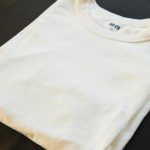If you want the best for your baby’s delicate skin, you need to know which cotton types to choose for their clothes.
In this article, you’ll discover the benefits of organic cotton, the advantages of Pima and Egyptian cotton, the superiority of Supima cotton, and the wonders of bamboo cotton blends.
With this knowledge, you’ll be able to make informed decisions when it comes to providing the utmost comfort and safety for your little one.
Table of Contents
Benefits of Organic Cotton
When choosing cotton types for your baby’s clothes, you might consider the benefits of using organic cotton. Organic cotton offers important health benefits for babies. Unlike conventionally grown cotton, organic cotton isn’t treated with harmful chemicals such as pesticides, fertilizers, or synthetic dyes. This means that the clothes made from organic cotton are free from residues that can irritate your baby’s delicate skin. In addition, organic cotton is hypoallergenic, making it a great choice for babies with sensitive skin or allergies.
Furthermore, opting for organic cotton also has a positive environmental impact. Organic cotton production follows strict guidelines that promote sustainability and biodiversity. Farmers who grow organic cotton use natural methods to control pests and enhance soil fertility. This reduces the use of harmful chemicals that can pollute the air, water, and soil. Additionally, organic cotton farming supports healthier ecosystems by preserving biodiversity and protecting wildlife habitats.
Advantages of Pima Cotton
If you’re looking for a soft and luxurious cotton option for your baby’s clothes, consider the advantages of using Pima cotton.
Pima cotton, often referred to as the ‘cashmere of cotton,’ is known for its exceptional quality and durability. When comparing Pima cotton vs. organic cotton, Pima cotton stands out for its unmatched softness.
While organic cotton is grown without the use of synthetic pesticides and fertilizers, Pima cotton undergoes a longer and more meticulous harvesting process, resulting in longer and stronger fibers. This makes Pima cotton garments incredibly soft and gentle against your baby’s delicate skin.
Additionally, when comparing Pima cotton vs. Egyptian cotton, Pima cotton proves to be a superior choice for baby clothes. While Egyptian cotton is renowned for its luxurious feel, Pima cotton offers similar softness while being more affordable. Pima cotton also has a higher thread count, making it more durable and resistant to wear and tear. This is particularly important for baby clothes, as they go through frequent washing and drying.
Furthermore, Pima cotton has excellent breathability, allowing air to circulate freely and keeping your baby cool and comfortable. Its moisture-wicking properties help absorb sweat and prevent irritation, making it an ideal fabric for babies with sensitive skin or allergies.
The Superiority of Egyptian Cotton
For the superior choice in baby clothes, look no further than Egyptian cotton. When comparing cotton qualities, it becomes evident that Egyptian cotton stands out from other varieties in several ways:
-
Softness: Egyptian cotton is renowned for its exceptional softness, making it gentle and comfortable for your baby’s delicate skin. It provides a cozy and soothing feel that helps prevent any irritation or discomfort.
-
Breathability: Egyptian cotton allows air to circulate freely, keeping your baby cool and dry. Its breathable nature prevents overheating and helps regulate body temperature, making it ideal for all seasons.
-
Durability: Egyptian cotton is known for its strength and durability. Its long staple fibers make it less prone to breakage, ensuring that baby clothes made from this fabric can withstand the wear and tear of frequent washing and usage.
-
Hypoallergenic properties: Egyptian cotton is hypoallergenic, making it less likely to cause allergic reactions or skin irritations. This quality is especially important for babies with sensitive skin, ensuring their comfort and well-being.
In comparison to other cotton varieties, Egyptian cotton stands out as the superior choice for baby clothes. Its exceptional softness, breathability, durability, and hypoallergenic properties make it the perfect fabric for your little one’s delicate needs.
Understanding Supima Cotton
To truly understand Supima cotton, you need to delve into its unique characteristics and benefits for baby clothes.
Supima cotton is known for its exceptional durability and hypoallergenic properties, making it an ideal choice for sensitive baby skin. Unlike regular cotton, Supima cotton is made from longer and stronger fibers, resulting in a fabric that’s more resistant to wear and tear. This means that baby clothes made from Supima cotton will last longer, even after multiple washes.
Additionally, Supima cotton is naturally hypoallergenic, meaning it’s less likely to cause irritation or allergic reactions on your baby’s delicate skin. This is because the fibers of Supima cotton are smoother and finer compared to other types of cotton, reducing the chances of irritation.
When choosing baby clothes, it’s crucial to consider the fabric’s durability and its impact on your baby’s skin. Supima cotton offers the perfect combination of strength and softness, ensuring that your little one stays comfortable and protected all day long.
Exploring Bamboo Cotton Blends
Continue to explore the benefits of choosing specific cotton types for baby clothes by delving into the versatility and eco-friendly qualities of bamboo cotton blends. These blends combine the natural properties of bamboo with the softness of cotton, resulting in a fabric that’s perfect for your little one’s delicate skin. Here are four reasons why bamboo cotton blends are a great choice for baby clothes:
-
Sustainability: Bamboo is a highly sustainable resource as it grows quickly and requires minimal water and pesticides. By choosing bamboo cotton blends, you’re making an environmentally conscious decision and reducing your carbon footprint.
-
Softness: Bamboo cotton blends are incredibly soft, making them ideal for baby clothes. The fabric feels gentle against their sensitive skin, ensuring maximum comfort throughout the day.
-
Breathability: The natural fibers in bamboo cotton blends allow for excellent breathability. This means that your baby will stay cool and comfortable, even in warmer weather.
-
Durability: Despite their softness, bamboo cotton blends are surprisingly durable. They can withstand repeated washing and wear, making them a practical and long-lasting choice for baby clothes.
Frequently Asked Questions
How Do I Properly Care for Baby Clothes Made of Organic Cotton?
To properly care for baby clothes made of organic cotton, follow these washing and drying techniques. Use a gentle detergent, wash on a delicate cycle, and avoid high heat when drying.
Are There Any Potential Allergenic Properties Associated With Pima Cotton?
When choosing cotton for baby clothes, consider potential allergies. Pima cotton is less likely to cause allergies, but there are alternative options like organic cotton. Carefully choose the cotton type to keep your baby comfortable.
Can Egyptian Cotton Be Used for All Types of Baby Clothing, Including Winter Wear?
Egyptian cotton is suitable for all types of baby clothing, including winter wear. It is known for its durability, which makes it a great choice for keeping your baby warm during the colder months.
Are There Any Specific Benefits of Supima Cotton for Babies With Sensitive Skin?
Supima cotton has specific benefits for babies with sensitive skin. It is incredibly soft, hypoallergenic, and gentle on delicate skin. If you’re looking for alternatives, consider organic cotton or bamboo fabric.
What Are the Advantages of Using Bamboo Cotton Blends for Baby Clothes?
Using bamboo cotton blends for baby clothes has several advantages. These blends are soft, hypoallergenic, and breathable, making them perfect for sensitive baby skin. They also have natural antimicrobial properties, keeping your baby fresh and odor-free.






